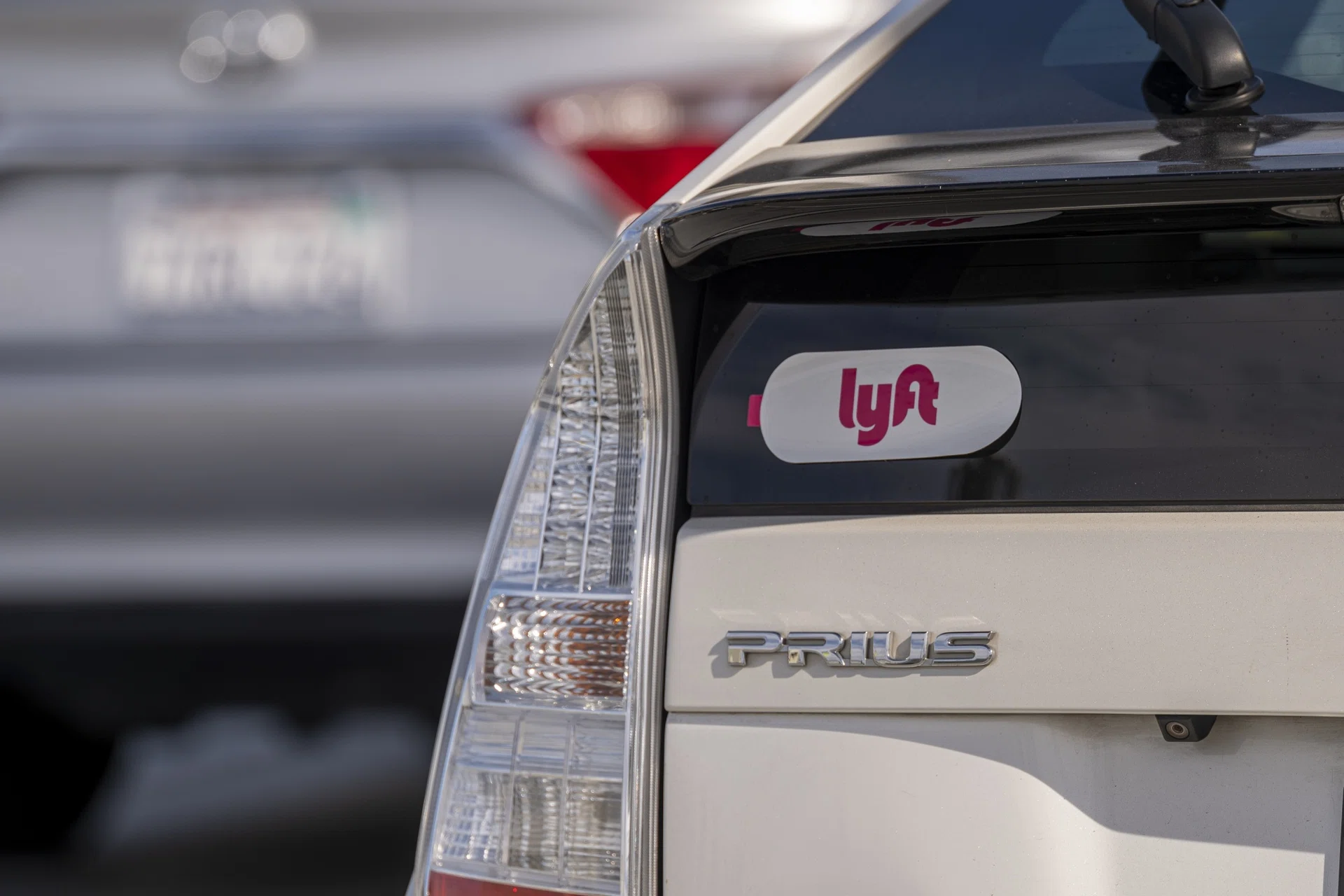Ride & Mobility
Taxi and Ride Hailing Services Market to Surpass USD 686.34 Billion by 2034 – openPR.com

Ride & Mobility
Lyft shares slide on weak sales, disappointing ride totals

[NEW YORK] Lyft shares slid in late on Wednesday (Aug 6) trading after the ride-hailing company reported revenue that fell short of Wall Street’s expectations, stoking concerns about its efforts to expand globally.
The company reported revenue of US$1.59 billion in the three months ended Jun 30, slightly missing analysts’ expectations of US$1.61 billion. And while the number of rides completed on the platform hit an all-time high, they too fell short of projections. Shares of the company were down about 7.2 per cent at about US$12.97 in after-markets trading.
The results landed just hours after Uber Technologies issued a better-than-expected forecast for the third quarter and exceeded Wall Street’s expectations on gross bookings. However, the company’s own ride-share unit recorded US$23.8 billion in bookings, falling slightly below expectations, also driving the company’s shares down on Wednesday.
The disappointing results of ride-hailing companies such as Uber and Lyft are offering a glimpse into discretionary consumer spending at a time when the economy is already flashing warning signs. Just last week, US employment numbers painted a much weaker picture of the labour market than previously reported, and inflation-adjusted consumer spending, which accounts for about two-thirds of US economic activity, fell in the first half of the year.
Lyft’s sales miss overshadowed what was otherwise a strong quarter. The company’s net income totalled US$40.3 million in the second quarter, more than double the US$18.1 million that analysts had expected. Gross bookings gained 12 per cent from a year earlier, roughly in line with estimates. The number of active passengers hit a record.
In the third quarter, Lyft said that it expects gross bookings to rise to as high as US$4.8 billion and projected adjusted earnings of US$125 million to US$145 million. The company’s outlook includes the integration of Freenow, the European taxi app it recently acquired, beginning Aug 1.
BT in your inbox
Start and end each day with the latest news stories and analyses delivered straight to your inbox.
Since attaining consistent positive free cash flow in the past year, Lyft has been working on growing globally. It has expanded into the ten most populous Canadian cities, as well as Puerto Rico. Last week, the company formally entered nine new European markets, including the UK and Germany, after completing its acquisition of Freenow.
As part of this expansion, Lyft announced this month a partnership with Baidu to begin deploying autonomous vehicles in Europe. Initial launches are planned for Germany and the UK in 2026, pending regulatory approval, with Lyft using Baidu’s robotaxis.
Last month, Uber announced a deal in which it will feature Baidu’s driverless cars on the Uber app, but the initial deployment later this year is planned for Asia and the Middle East, not Europe.
Lyft is also working towards offering its first driverless rides in Atlanta later this year with May Mobility. The firm’s also planning US deployments in 2026 with Intel-backed Mobileye Global and Benteler Group.
Lyft separately announced on Wednesday a new partnership that would allow United Airlines Holdings members to earn miles on rides. BLOOMBERG
Ride & Mobility
Unlocking Urban Mobility: What Israel’sRide-Hailing Market Needs Next

Israel’s urban landscape faces chronic traffic congestion, scarce parking, and limited public transit. High import taxes and complex regulations further complicate ride-hailing growth.
Yet even in this constrained environment, opportunities exist. As Eugene Suslo, CEO of Onde.app, puts it:
“Complexity doesn’t preclude progress – it needs operational flexibility and local understanding.”
Structural barriers to growth are real, though solvable
Public transport struggles with coverage and reliability, making private vehicles the default choice and worsening congestion. Car ownership is costly due to import taxes of up to 35%, environmental levies, and other fees. Security risks also affect ride-hailing economics, requiring strict safety protocols.
“There’s no single bottleneck,” notes Suslo. “It’s a layered problem. Solving it takes more than just an app.”
What’s needed to move forward
Experts point to reform and innovation despite these hurdles. Investment in infrastructure, such as Tel Aviv’s light rail, could integrate with ride-hailing services to reduce car dependency and improve coverage in underserved areas. Tax reform could also help modernize fleets, especially electric vehicles (EVs), which now receive government incentives.
Precise pick-ups, flexible rates between zones, and a smart route optimization algorithm improve operational efficiency, decreasing drivers’ idle times and passengers’ waiting times. Real-time analytics and AI recommendations for better performance ensure company growth, while safety features, which white-label ride-hailing solutions like Onde offer – drivers’ checkup, SOS button, Follow My Ride – guarantee a safer experience for both passengers and drivers.
“Our partners aren’t trying to outspend global giants,” says Suslo. “They’re building local trust and adapting to regional nuances.”
Insights from nearby markets
Operators who try to replicate global ride-hailing giants tend to struggle. Instead, hyperlocal, adaptable models often succeed. Onde’s experience across diverse markets – including in Israel’s Arab-speaking communities, where cultural and linguistic nuances require tailored approaches:
- NEMT: Onde’s clients in Eastern Europe partnered with healthcare providers to connect patients to clinics, especially in areas with limited public transit.
- Delivery-enabled ride-hailing: In times of COVID-19, crisis or conflict, delivering groceries, meds, or packages becomes a must-have. Onde sees growing interest in ride-hailing+delivery hybrids from Israeli prospects.
- Women-only services: While not widespread in Israel, such services resonate with specific communities, mainly Arab and ultra-Orthodox Jewish women, where cultural and religious norms call for women-driven, women-only transport. For example, this model helped build loyal user bases in Africa. In Israel, it remains a niche but meaningful segment, aligned with growing public discourse around safety and gender-sensitive mobility.
- EV-based fleets: Electrified fleets not only reduce costs over time but also align with Israel’s green mobility goals. Onde helps operators track energy usage and optimize charging.
Israel at a crossroads
The market is torn between structural and economic barriers and a tech-savvy population eager for better mobility options. Progress requires supportive regulation, infrastructure upgrades, and business models prioritizing local needs over global scale. With demand clear, the challenge lies in delivering solutions rooted in both code and context.
Ride & Mobility
Bolt granted license to operate in Zanzibar, marking major leap in ride-hailing policy

Unguja. Zanzibar has officially licensed ride-hailing company Bolt to operate on the islands, marking a significant policy shift that opens the door for tech-enabled mobility services in the Isles
The announcement, made on August 6, signals a new chapter for urban transport in Unguja, as authorities seek to modernise public mobility while unlocking economic opportunities tied to tourism and digital platforms.
Bolt’s entry into Zanzibar is the first major ride-hailing deployment on the islands and comes amid growing demand for efficient, safe, and flexible transportation options — particularly during peak tourism seasons.
The company, which operates in over 50 countries and 600 cities worldwide, says its presence will benefit both local residents and international visitors.
“This milestone is a vote of confidence in Bolt’s track record, and we’re proud to deploy our platform in service of Zanzibar’s economic ambitions,” said Dimmy Kanyankole, General Manager for Bolt Tanzania.
“We applaud the Government’s bold and progressive decision to embrace ride-hailing as a tool for economic stimulation and inclusive growth.”
Kanyankole also acknowledged the collaborative role of the Zanzibar Road Transport and Safety Authority (ZARTASA), noting that constructive policy dialogue helped shape a regulatory framework that supports innovation, job creation, and improved mobility services.
For the government, the move reflects a broader strategy to leverage technology and private-sector partnerships to stimulate community-level growth. Officials say formalizing ride-hailing platforms like Bolt will not only help decongest urban areas but also support informal job creation and improve service delivery across sectors.
The timing is critical. According to the Zanzibar Commission for Tourism, the islands recorded more than 106,000 international visitors in July alone — the highest monthly tourist arrival in the archipelago’s history. Since the start of 2025, Zanzibar has already welcomed nearly half a million tourists, placing significant pressure on the region’s transport infrastructure.
Bolt’s rollout is expected to boost resilience in mobility during high-tourism periods while offering familiar, tech-enabled solutions for global travellers. The platform also promises to open income streams for local drivers, who can now plug into a globally recognized system with in-app safety features and transparent pricing.
The company has yet to confirm the exact number of drivers or routes for its Zanzibar service but has emphasized that operations will begin in Unguja, with potential expansion based on demand and regulatory support.
As Zanzibar continues to evolve as a high-profile destination, the entry of Bolt could serve as a model for further digital transformation in transport and tourism.
-

 Brand Stories2 weeks ago
Brand Stories2 weeks agoBloom Hotels: A Modern Vision of Hospitality Redefining Travel
-

 Brand Stories2 weeks ago
Brand Stories2 weeks agoCheQin.ai sets a new standard for hotel booking with its AI capabilities: empowering travellers to bargain, choose the best, and book with clarity.
-

 Destinations & Things To Do3 weeks ago
Destinations & Things To Do3 weeks agoUntouched Destinations: Stunning Hidden Gems You Must Visit
-

 Destinations & Things To Do2 weeks ago
Destinations & Things To Do2 weeks agoThis Hidden Beach in India Glows at Night-But Only in One Secret Season
-

 AI in Travel3 weeks ago
AI in Travel3 weeks agoAI Travel Revolution: Must-Have Guide to the Best Experience
-

 Brand Stories1 month ago
Brand Stories1 month agoVoice AI Startup ElevenLabs Plans to Add Hubs Around the World
-

 Brand Stories4 weeks ago
Brand Stories4 weeks agoHow Elon Musk’s rogue Grok chatbot became a cautionary AI tale
-

 Brand Stories2 weeks ago
Brand Stories2 weeks agoContactless Hospitality: Why Remote Management Technology Is Key to Seamless Guest Experiences
-

 Asia Travel Pulse1 month ago
Asia Travel Pulse1 month agoLooking For Adventure In Asia? Here Are 7 Epic Destinations You Need To Experience At Least Once – Zee News
-

 AI in Travel1 month ago
AI in Travel1 month ago‘Will AI take my job?’ A trip to a Beijing fortune-telling bar to see what lies ahead | China













You must be logged in to post a comment Login